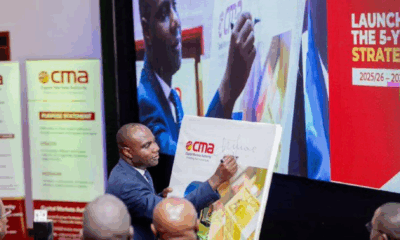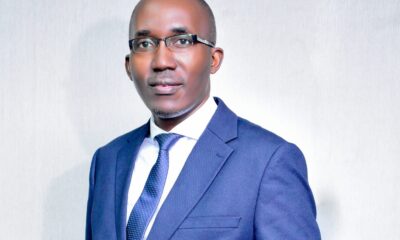Ramathan Ggoobi
Who is in charge of government?
Government is evidently uncoordinated; institutions of the state are long dead, and the country is noticeably suffering from “Sejusamania”! These are worrying times for our country
A couple of weeks ago we received the news that Col. Shaban Bantariza had been appointed the Deputy Executive Director of the Uganda Media Centre. Before even we got started analysing his appointment, we received another bunch of news that the new deputy government spokesman had been arrested and detained over allegations of abuse of office and embezzlement when he was still Director of National Leadership Institute (NALI), Kyankwanzi.
Immediately we received this latest news we could not help asking: who had appointed Bantariza in his new job? Who had ordered his arrest and prosecution in the Military Court Martial? If indeed Bantariza had stolen the money from Kyankwanzi, see that it looks ridiculous for the Minister in charge of the Presidency to be the one to comment about everything, literally everything, in media, in churches, in seminars, in bars?
Presidentialism is a disease
From markets, to boda-bodas to budget performance to NAADs to KCCA to recipients of mosquito nets…we have heard Hon. Frank Tumwebaze getting so animated to engage the media. What’s the new job description for the Presidential Press Secretary? Should we only expect Tamale Mirundi working during election time and while fighting “dirty” political wars? What is the job of the Media Centre? What’s the job of other spokespersons, of KCCA, police, army etc if Tumwebaze is going to comment about everything?
Mr President, in 2007 I wrote about what I termed “Presidentialism” — a distasteful tendency by you to intervene in everything, whether it deserves the attention of the presidency or not, and in the process undermining the existing institutions.
I asked the following questions: “Is President Museveni now the government? Where are the other institutions?” At that time I decided to pick pen and paper following a spate of strikes and demonstrations that engulfed the country. From market vendors and boda-boda riders, to university lecturers and students, to groups of primary school teachers and other workers, the country was under siege. Most of them were staging riots as a bait to attract you to solve their grievances.
I had prior to these incidents pointed out and warned that your populist habit of intervening in everything, including meeting boda-boda riders and roadside kiosk attendants, would breed a dangerous culture of centralisation of authority and “presidentialism”. You encouraged Ugandans of all walks of life and caliber to undermine other authorities and leaders except the president. “Unless the president himself intervenes, no one can convince us”, the chorus echoed across the country.
Indeed in 2008, government hired a UK-based consultancy firm, the Oxford Policy Management, to evaluate the Poverty Eradication Action Plan (PEAP) and find out why this highly promising framework had failed. The investigators identified an institutional disease in Uganda — lack of collective decision-making at the political level. They patently pointed out your deliberate erosion of the role of the Cabinet as a collective decision-making body.
Kategaya warned us!
Mr President, I had already warned that your populist approach to governance was bound to breed policy incoherence in the country; was undermining morale among your colleagues; and was bound to undermine capacity of your entire government to deliver. In the hey days of your leadership, in late 1980s and early ‘90s, you never initiated anything without consulting with your colleagues and advisers.
Today, national policies are initiated and launched by you without any consultations and sufficient attention or commitment to the level of sustained funding necessary for their effective operation. You keep coming up with capricious programmes and policies, some of which are in conflict with other policies of government. You single handedly brought national tragedies such as Bonna Bagaggawale, the abolition of graduated tax, and changes in local government through the proliferation of new districts.
Nowadays you pay strikingly little attention to the role of the Cabinet as a collective decision-making body, the parliament, we the people, and I suspect military high command. Former Local Government Minister Bidandi Ssali and the late Eria Kategeya revealed that since the emergence of bisanja politics you stopped consulting Cabinet. That you usually decide on a policy single-handedly and only table it to Cabinet, not for debate and appraisal, but for rubber stamping!
Mr President, you need to reflect on some of these issues and appeal to your guile to reconsider some of them. It is simply illogical to think that you can go it alone and transform this country, whatever the context in which you use the term “transformation’.
It is time you reflected on your approach, rethink the caliber of people you have lately entrusted state power with. I look around your current cabinet and develop goose pimples. I really fear for the future of this country. It is time you discarded your “I know it all” attitude. Leadership is about multi-agent groups and not single-agent autocracy.
State House suffocating others!
There is need for you to ensure political engagement and ownership of national policies and projects instead of originating them from State House and expect everyone else to simply tag along them.
Evidence has it that all successful NRM projects were adopted during a period of a high level of national consensus. Right from the Luwero days when you drew up the Ten-Point Programme, successful national policies and activities were thought out and rolled out with full inclusion of the views of all key political stakeholders.
It is not a coincidence that almost all non-starting national projects, notably Bonna Bagaggawale, the Strategic Export Initiative, the Rural Development Strategy, NAADs, and new districts project, did not emerge from the consultative processes. Undoubtedly, these and other failed initiatives have had less national ownership. They have a greater interventionist aspect originating from Nakasero or Rwakitura or Kisozi.
State House has taken a high profile in directly promoting initiatives in terms of the NRM’s election manifesto rather than national policies.
For example, I know for sure that majority of government technocrats did not subscribe to and therefore did not support Bonna Bagaggawale. Since I started writing about Bonna Bagaggawale, and I presume my position is quite clear, I have received overwhelming encouragement from unexpected and surprising sources within the bigger realm of Government, including would be key players like Permanent Secretaries, heads of government departments, senior politicians and other technocrats. Now I know for sure that key players at Ministry of Finance and at the Bank of Uganda did not, and do not support most of your “one man’s vision” Mr. President.
It is high time Mr President you retraced the basic historical NRM virtues. When you came in 1986 and gave us those legendary speeches early in your tenure, we thought in you we had got a Lee Kuan Yew or a Park Chung Hee. These are leaders who saw need for change, cared about promoting the long-term good of their people, and built contexts that facilitated multi-agent leadership. Forever their names will be recounted and lauded in classrooms, lecture venues, and motivation seminars on leadership around the world.
Mr President, your one-man vision syndrome will continue to jeopardize all your efforts and erode whatever achievements you had made. You may have succeeded in the past as a “sole thinker” and decision maker out of what the Scottish call happenstance, and it usually happens once.
Comments


























